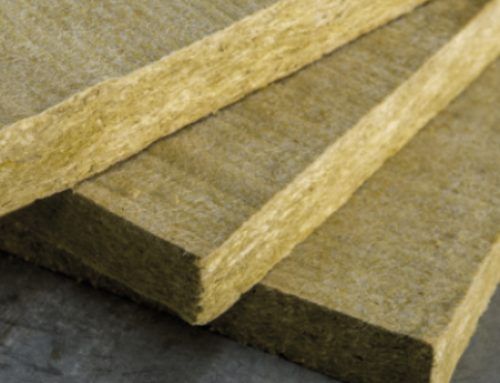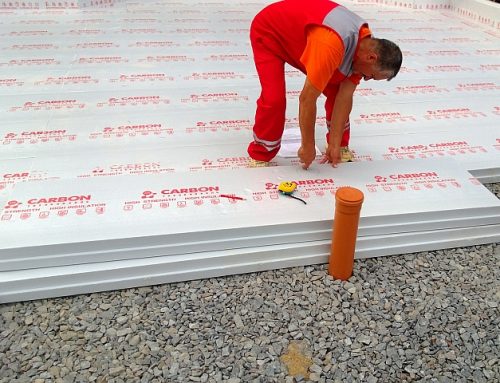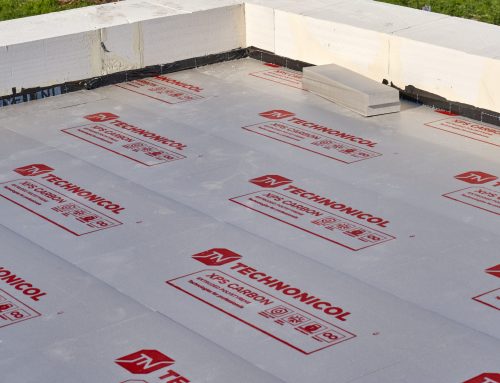Efficient thermal insulation is an important aspect of flooring in any cold storage facility. It helps to maintain the correct internal temperature and reduce energy usage. The reversal of the usual flow of heat and moisture inside to outside needs to be taken into account in the case of cold storage. Unlike regular building structures, heat flows from the moist sub-soil and external environment towards the colder, drier interior of the cold storage area by diffusion through the floor and enclosure.
In addition to important factors like thermal efficiency and moisture resistance, insulation in cold storage flooring needs to have adequate compressive strength characteristics. It must be capable of bearing the load of the other floor materials as well as the dynamic and static weight of stored goods and human activity in the cold storage facility.
Assessing Compression Behaviour for Cold Storage Flooring
The ability for a material like insulation to resist the loads applied to it is assessed and declared by measuring its compression behaviour. The test method for insulation materials involves a sample being placed between two plates of the testing apparatus with different degrees of force applied. The assessed compression behaviour of an insulation material can vary depending on the test method and standards.
In one case, it can refer to the load that compresses the insulation by 10% of its thickness, resulting in relative deformation to the original sample thickness. Alternatively, it can refer to the load “at yield”, which is the point at which the insulation material can be described to have failed before compressing by 10%.
Importance of Compressive Strength in Cold Storage Floors
An insulation material would never be used in a situation where it could potentially compress by 10%. The consequences of that much movement could not be tolerated by any materials in the construction of cold storage flooring. Assessing compression behaviour and specifying the correct insulation for flooring is essential for safety and the correct function of a cold storage structure.
Insulated concrete slabs are a common requirement in cold storage facilities. The insulation used in cold storage floors must therefore be capable of supporting heavy loads. This includes structural loads from the floor itself in addition to stored goods and dynamic loads from things like foot traffic and heavy vehicles driving across the floor.
Compressive Creep
Another important consideration when specifying insulation for cold storage floors is accounting for compressive creep. Long-term loading creates a progressive compression that affects different materials in different ways. The long-term effect of loads therefore requires a different measure – compressive creep. Static weight from stored goods is more likely to be the cause of compressive creep.
Unfortunately, many insulation material manufacturers don’t test for compressive creep, as it requires a testing period from 122 days to 608 days, depending on the period of years being simulated – 10, 25 or 50 years. Some manufacturers declare compressive creep as ‘compressive strength at 2% compression’ or similar since the overall compression evidenced is typically around 2%.
Compressive Strength Characteristics of XPS Foam
XPS foam offers one of the broadest ranges of compressive strengths and is one of the few insulation products where manufacturers invest the time to test and declare compressive creep. The uniformly distributed closed cells in XPS foam give it superior compressive strength characteristics. This makes it a reliable and long-lasting solution when used in cold storage floors that must bear heavy loads.
XPS foam also has several other characteristics in addition to high compressive strength that make it ideal for use in cold storage flooring. It has a high, stable, and predictable thermal conductivity, is highly resistant to moisture, is incredibly durable and has a long lifespan.
Technonicol’s Carbon XPS foam series comes in a variety of sizes, thicknesses, and compressive strengths to meet the demands of any cold storage flooring specification. Technonicol’s Carbon Prof 300 and Carbon Solid 500 are ideal for cold storage flooring as Carbon Prof 300 offers a minimum compressive strength of 300 kPa and Carbon Solid 500 offers a minimum compressive strength of 500 kPa making them more than capable of accommodating the higher floor loads found in cold storage facilities.
Related Questions
Why is water resistance so important?
Water is an excellent conductor of heat, so moisture drastically reduces the thermal performance of insulation. Moisture resistance is especially important in areas such as cold storage flooring. XPS foam insulation is a closed-cell insulation made via an extrusion manufacturing process meaning it is free of tiny voids or spacing between the cells unlike other materials like expanded polystyrene (EPS) foam. This makes it highly resistant to water absorption and water vapour transmission.
Can XPS foam withstand freeze/thaw cycles?
A closed-cell construction enables XPS foam to resist freeze-thaw cycles, which is a key requirement for cold storage floor insulation. Moisture that gets into tiny gaps of other insulating materials will shrink and expand as it goes through the freeze/thaw cycle, causing it to deteriorate and lose its thermal performance over time.





Leave A Comment